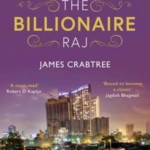The latest from Michael Rosen's column on language and its uses

Drone, c. 4000 BCE: male bee
It’s ironic that what has become the most modern form of warfare owes its name to some of the earliest pieces of writing in English. At that time, as now, it was the word for a male bee. Given that similar words exist in many other languages for the insect and the noise it makes, the suggestion is that the noun, and its verb “to drone”, has been around for a very long time, as far back as the Indo-European language spoken some 6000 years ago.
It seems to be very susceptible to metaphor and simile. In the Anglo-Saxon Chronicle (1125), the author compared the actions of an acquaintance to the voracious behaviour of the drone, eating everything that it pulls into the hive. By 1400, in the midst of the Hundred Years’ War, the drone had become a metaphor for someone who grows fat from the work of others. The first poet laureate John Skelton used the word to make disparaging comments about the Scots: “The rude rank Scottes, lyke dronken dranes” (c.1529). This theme runs through the centuries, even into official documents. The Registration for Employment Order, published after the Second World War, compiled a list of citizens the government wished to get back into work, describing them poetically as “spivs, drones, eels and butterflies”.
The first recorded mention of “drone” to describe some kind of remote-controlled aircraft is in the US in 1936. Since then, a wide variety of pilotless flying devices have been devised. They can be used for creative and recreational purposes. But they are also increasingly being deployed for reconnaissance and lethal attack – at no risk to the operators.
When we recall Wernher von Braun’s long-range guided missiles, used in the Second World War, this form of warfare from afar is nothing new. But the terrifying destructive precision of the modern drone stands in stark contrast to the benevolent honeybee. Or perhaps it is not so different – we might think of the bee hovering over his flower of choice, before diving in and achieving his goal.
This article is from New Humanist’s Autumn 2025 issue. Subscribe now.

